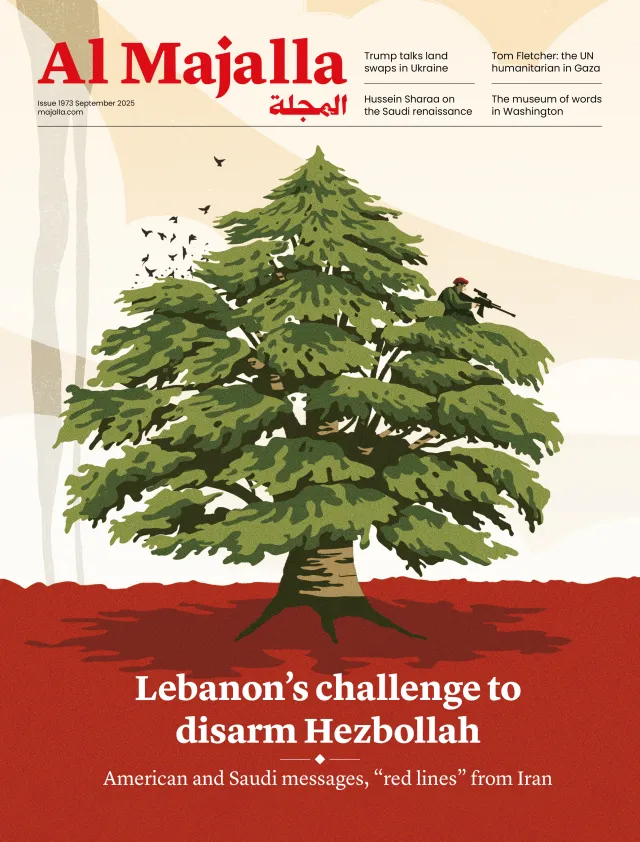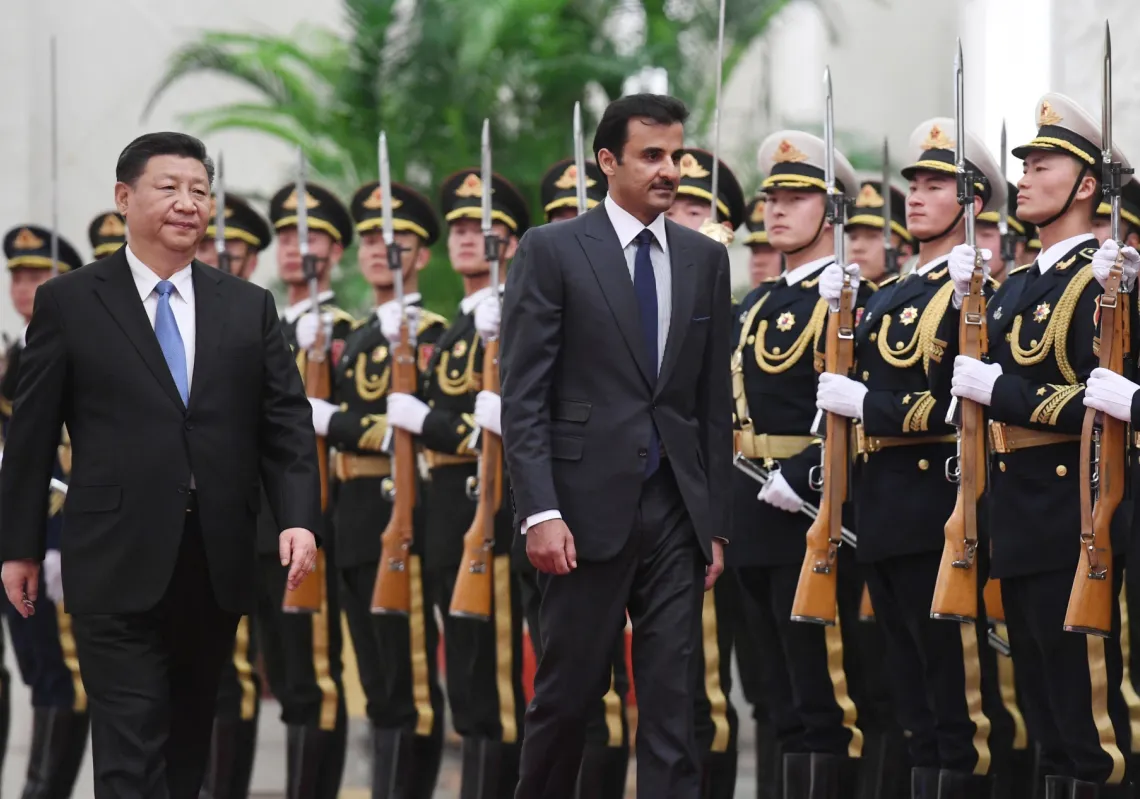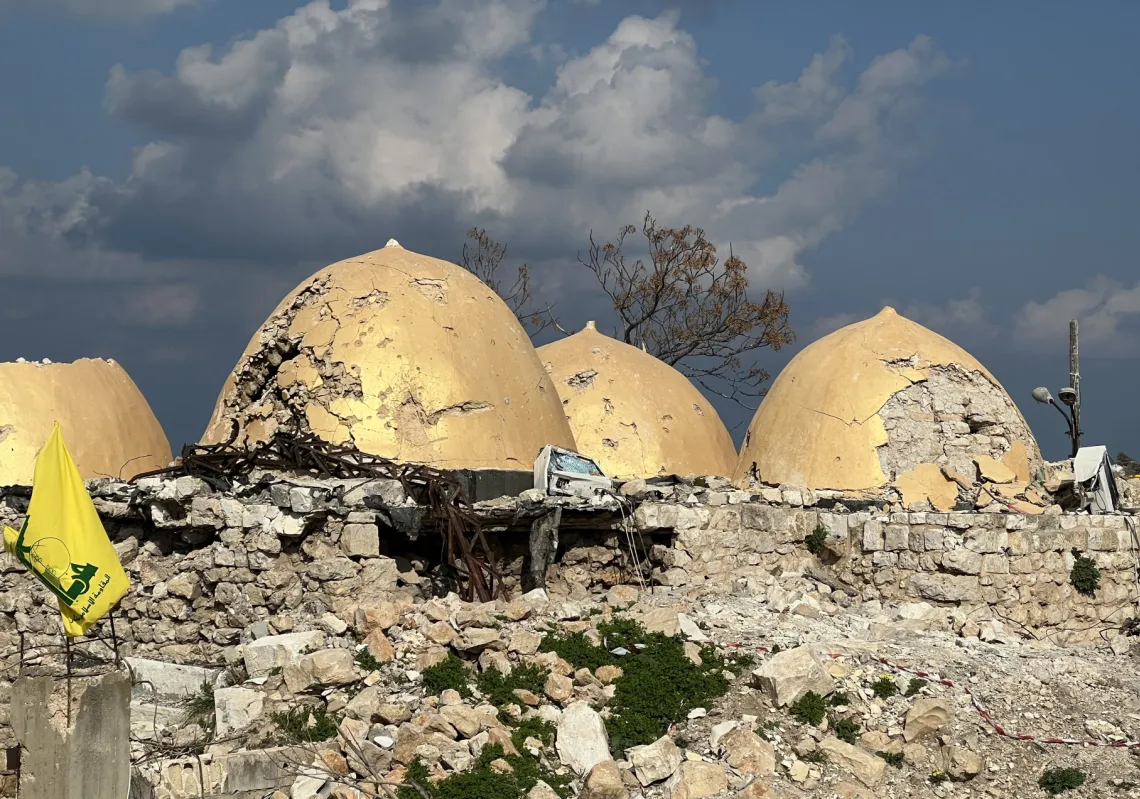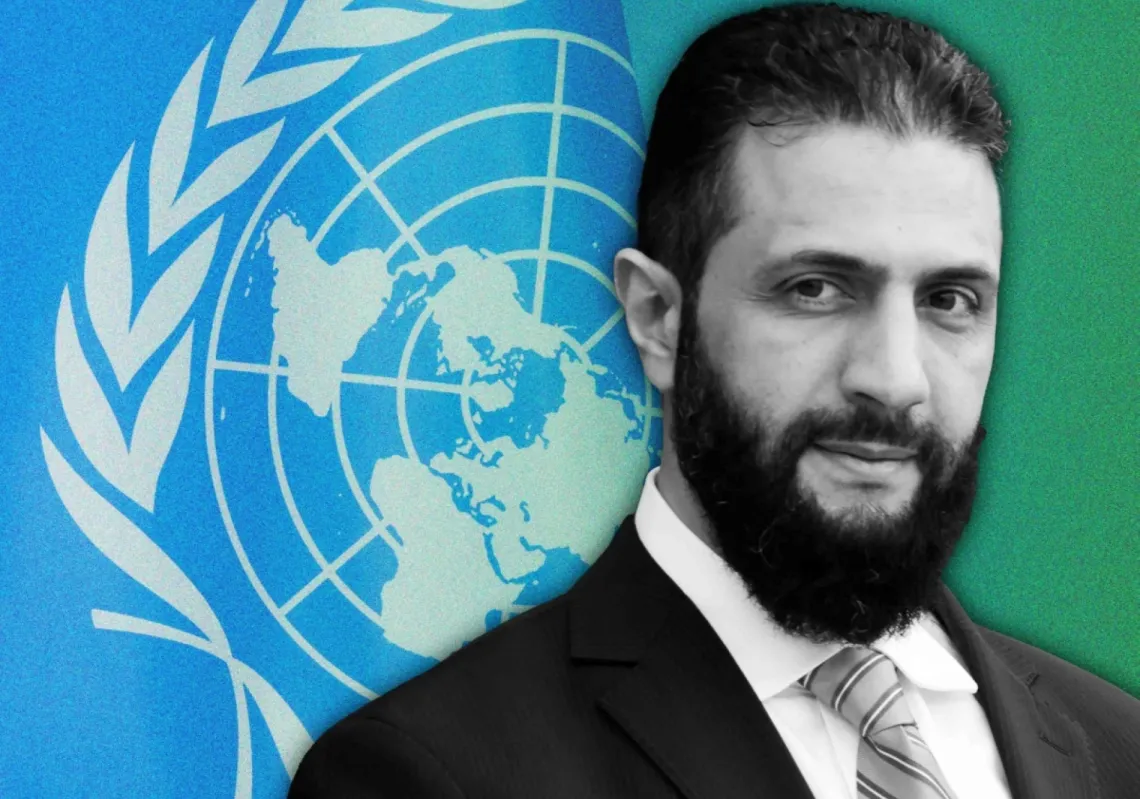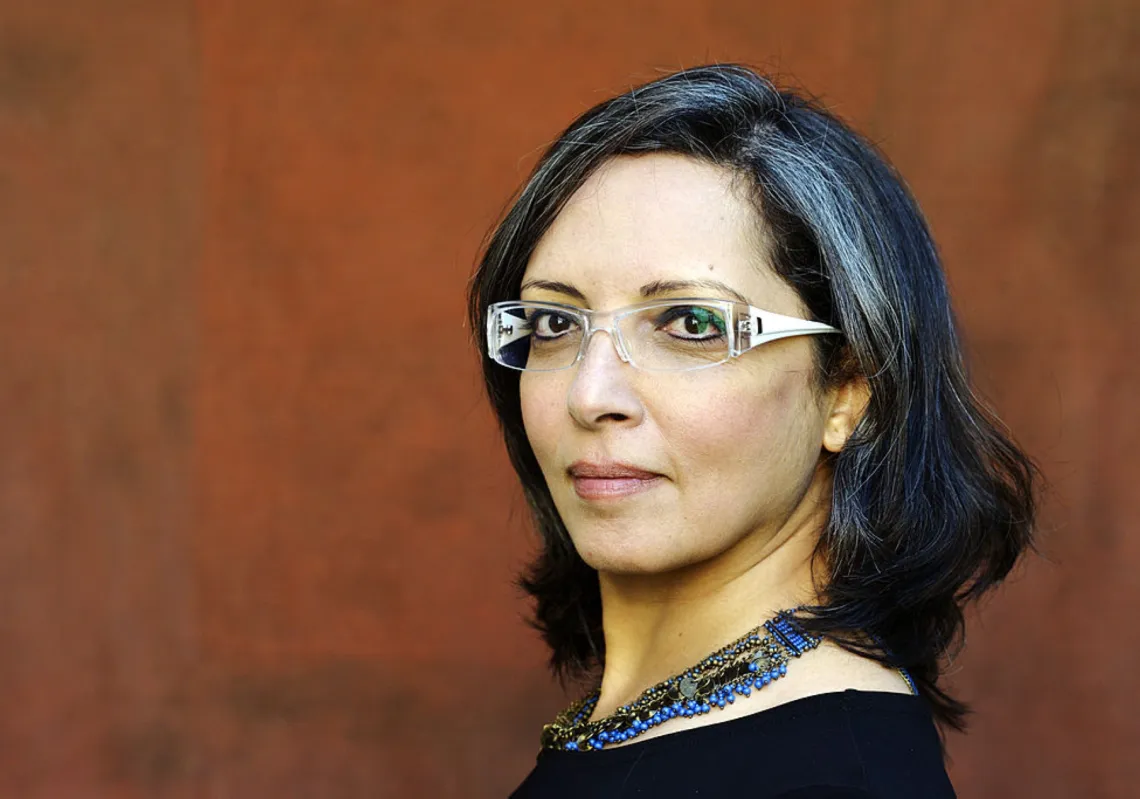America’s top expert on Iran is the only serving US official to have had a face-to-face meeting with the Supreme Leader of the Islamic Republic of Iran, the famously aloof Ayatollah Ali Khamenei. Although he rarely meets with politicians, Khamenei sometimes makes exceptions for Iranian allies such as Russian President Vladimir Putin and Turkish Prime Minister Tayyip Erdogan.
Ambassador John Limbert inhabits a very exclusive club: He travels the globe in his capacity as a senior State Department diplomat seeking to build an international coalition against Iran. However, his 1981 meeting with Khamenei was conducted in surroundings entirely divorced from the niceties of diplomatic protocol. Then, Limbert was a prisoner and Khamenei, a captor.
Limbert was one of the US diplomats held for 444 days by the revolutionary Iranian regime. In January 1981 Khamenei swept into the US Embassy compound where the Americans were being held for a televised visit. Dressed in his clerical robes, black turban, and chunky reading glasses, Khamenei faced Limbert, whose fluent Persian was difficult to ignore. Having learned Persian during the four years he spent in Iran, the young US diplomat had a few choice words for the future Supreme Leader.
In typical Persian fashion, Limbert ditches brash American confrontationalism for honeyed, double-edged pleasantries. Bidding the then-deputy defense minister to sit down in a bare room but for posters of Ruhollah Khomeini and a map of the region, Limbert apologizes for being unable to offer traditional Persian hospitality. “The lads haven’t brought any sweets today,” he points out, referring to his captors.
Khamenei stares at him with a glassy smile while Limbert launches into a monologue praising Iranian hospitality. Iranians are so hospitable, he dumbly enthuses, that “they don’t want to allow their guests to leave.”
So infuriating is Limbert’s verbal onslaught, it prompts Khamenei to commit the cardinal sin of any Iranian argument, however heated: brutal honesty.
“Actually, no one wants you to stay here,” Khamenei snaps back, fully aware he is being toyed with on a televised propaganda piece intended to showcase the consideration with which the new regime looks after its American prisoners, despite being burdened by the hardships brought on by the Revolution and Iraq’s invasion.
“Quite the opposite. Both the lads here and the Iranian people don’t want you to stay… they want you to leave the soonest possible,” he says.
Thirty years after leaving Iran, Limbert’s Persian is still in working order; his Iranian wife sees to that. His current appointment is a sign that US President Barack Obama recognizes the value of regional specialization as part of his staff’s experience and education. It is the kind of preference that went out of fashion with the extinction of State Department Arabists such as the legendary Hume Horan, incidentally himself of Iranian origin.
As the US seeks to convince the UN Security Council’s non-permanent members—Brazil, Lebanon and Turkey—to support added sanctions on Iran, Limbert answered The Majalla’s questions about the future of the US-Iranian relationship.
The Majalla: The Iranian line on the change in regime in Washington—Obama following Bush—is that there’s been a change in tone though not substance. How would you respond to this charge? In what way has US policy changed vis-à-vis Iran compared to the Bush years?
I think they’re missing it if that’s what they really believe. And I’m not sure that’s what they really believe or find it convenient to believe as a delaying tactic.
Q: What are the significant changes then?
Well it’s very clear. Obama said it as early as the campaign that he was going to change this relationship. We’ve had 30 years of estrangement. Sometimes you’ve had a few signs of process going here and there but it hasn’t gone anywhere.
He said it in the campaign, he said it implicitly in his interview with Al-Arabiyya; he said it explicitly with his Nawruz (Iranian new year celebration) message; he said it in Cairo; he said it again at Oslo in his (Nobel Peace Prize) speech. It’s hard for me to see how they could claim there’s been no change. Of course, they can go out and find statements by this or that official and perhaps there’s something in them that they don’t like but to me that’s bahanegiri, making excuses.
Q: So some of the proposals on the table that are different from those of the Bush administration include this new deal that effectively accepts Iran’s uranium enrichment program on its territory, to some degree, and the alleged withdrawal of funding for the democracy promotion program. Have there been any other substantive changes or offers?
Well, depends by what you mean as substantive. The thing that I would point to—because we deal in the realm of symbols—would be something Obama said in the Nawruz message that he addressed to, not just the people of Iran, but also to the government of Iran. This was deliberate change. The Bush administration had never done that. Even the Clinton administration had a hard time doing that. And this was deliberate.
He came back to that in his Oslo speech when he talked about engagement with governments that don’t have a very good human rights record. I think that’s a change. The other change is who he is. It’s very difficult to demonize a Barrack Hussein Obama.
Q: But Iranians argue that this is just fancy window dressing. He has a Muslim name but he is ultimately pushing through the same policies such as the drone strikes in Pakistan and …
If that’s what they want to see, they’re going to see it, but I think in doing so they’re ignoring the reality.
Q: There were young Iranians with Obama screen savers on their iPhones this summer in Tehran and everyone was talking about the Obama effect in terms of the campaign that Mousavi had run.
The word I’ve used to describe Obama for the Iranians is not doshman but havoo. It’s a co-wife—a second wife, which is much more dangerous than an enemy because she’s younger, more attractive … between doshman and havoo.
So when you’re faced with this havoo, in a way he has stolen the enemy from them. It’s difficult to deal with it. So one of the things they’ve done is to take refuge in “well, it’s just the same thing with new window dressing.” So that’s a hard case to make.
Q: You bring to the job an understanding of Iranian culture, fluency in Farsi alongside such people as Vali Nasr and formerly Ray Takeyh (ethnic Iranians appointed by the Obama administration as Iran experts). Is this a noticeable change in substance compared to the previous administration’s policy on Iran?
I think that this administration has made its desire very clear on what it wants to do. If I didn’t think that this was sincere I wouldn’t have accepted the job. The last time we corresponded I was very happy as a private citizen, but this was a chance to do something.
The other issue is that we’ve lost our cadre of Iranian expertise. I’m one of a species sometimes called an Iranosaurus.
Q: You and the Arabists?
And the Arabists. We have new people who are doing great work, but between that, there’s nothing in the middle; and there are very few, maybe one or two people, still on active duty in the foreign service who actually have served in Iran.
In terms of Iranian Americans, they’re a source of information, a source of wisdom. We haven’t frankly been very good at making use of their skills but we would probably need to do better.
Q: That is one of the charges leveled against the current cadres, that none have been in Iran since, in some cases, before the 1979 Revolution.
You can certainly make that charge against me. I haven’t been there since 1981. I’d like to go back. What I’m told is that a lot of things have changed but a lot of things remain the same.
Q: Has there been a realization now that simply speaking nicely to Iran is not going to be a game changer as we move towards sanctions?
I don’t think it was ever that way. I hope we weren’t so naive as to think that if we’re nice to them they’ll be nice to us. I wish the world worked that way, but certainly in the case of our relations with Iran it hasn’t worked that way for a very long time. Because when one side says they want to be nice to the other, the other side suspects a trick, because otherwise, why would they want to be nice to us?
Q: So why the insistence, under the terms of the uranium-swap deal, that all 1,200kg of the uranium go out of Iran? This seems to be the sticking point for the Iranians who think that the deal is a conspiracy to, in one fell swoop, deprive them of their entire stock of enriched uranium.
This really is out of my area. There are a lot of theories about that, conspiracy theories for me.
[See The Majalla interview: http://www.majalla.com/en/interview/article22501.ece]
Q: How about sanctions? How effective can they be if they are not going to target the Iranian people themselves but the IRGC (Islamic Revolutionary Guard Corps)? To what extent can they be a game changer in bringing Iran to the table for concessions?
On the one side they will be defiant and claim they don’t care. On the other side they don’t like being singled out as miscreants in the international community. It puts them in a category they don’t like to be, down with the Libyans and the Sudanese. And I don’t have to tell you what the Iranian view of their Arab friends is (smiles).
That’s psychological, but I think it matters. The other piece is whom they will affect. The intention is not to harm the great majority of the Iranian people. They’ve suffered a lot as it is and had to put up with a lot, and it’s not our intention to increase that. The intention is to get to the people or institutions that are beating them up, throwing them in prison, shooting at them, gassing them. And if you can do that, and visibly, at least according to what I hear, those kind of sanctions would get support.
Q: Sometimes isn’t there an element of cultural relativism in the US approach to Iran and the greater region? That somehow “they are the baddies who need to be punished and then there are the goodies who are on our side.”
I don’t think anyone’s claiming that these sanctions will bring democracy to Iran. A question I get many times from Iranian friends is “we’re suffering under a difficult government. Can you help us? What can you do for us?” We can make statements; we can bear witness. But is there something else one can do?
Q: So what was your impression of Khamenei when you met him? How did he come across?
Well, we were all 30 years younger at the time. I was baiting him. You’ve seen the video [http://niacblog.wordpress.com/2009/11/04/hostage-john-limbert-speaking-with-khamenei/]. At first I think he wanted to elicit some kind of statement from me but when he realized what was going on—because I think he’s a pretty smart person—he realized what was going on and then he played along.
Q: Did you feel at that point that you were speaking with someone who was going to be the top guy in a few years’ time?
I had no idea. I had no idea. Obviously he was very much part of the inner circle. At the time he was Friday prayer leader of Tehran and also a member of the Supreme Defense Council. This was a period when there really wasn’t any government as such. The provisional government had fallen—there was no parliament; there was a kind of temporary arrangement. But Friday prayer leader of Tehran, even then, was a very important post. The Friday prayer leaders in the key cities were definitely members of the inner circle.
Q: And so if you met him again, what would you talk about?
I’d be happy to meet him again. We could reminisce about meeting 30 years ago.
Q: Do you think that personal touch is something key in diplomacy?
It should be. It is, but … I don’t have an invitation to go there.
Interview conducted by Iason Athanasiadis – journalist based in Istanbul, covers Turkey, the Middle East and Central Asia. Since 1999, he has lived in Cairo, Damascus, Doha, Sana’a and Tehran.

